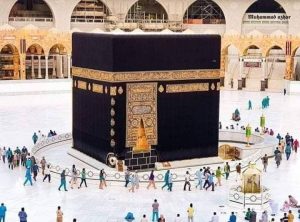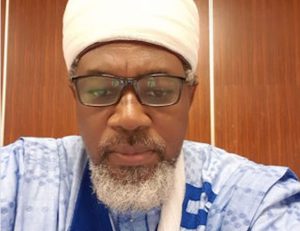This piece is provoked by the invitation by Summit University to address the Maiden Combined Convocation Ceremony, where I will speak to the broader issue of Islam and global knowledge on December 7, 2023. In the process of my research, I was able to cumulate the contributions and significance of the Ansar-ud-Deen Society to the development of education in Nigeria from the primary to the university levels.
The foundation of the modern Nigerian education system can be ascribed to the efforts of religious organizations and religious bodies who had held the fort even at the beginning of the colonial era. We know that the government sometimes loses its grip on the future and contemporary needs; some politicians would rather see education as an abstract, forgetting that it is the preeminent investment in our country. They are not roads that they could use to campaign in the next elections, as there would not be billboards carrying their faces between the roads. The sanctity of educational institutions, from the level of autonomy it requires, disallows politicians from playing much “ludo” with them. Those in power would have done much damage, but for struggles by ASUU.

The role of missionaries in the education system started a long time ago. The spread of Islam came with the spread of schools. The religious organizations in Africa served as the holders and beholders of the country’s educational system before, during, and after colonialism, with little or no interest from the government. When the government decided to have a big share of the system, one could see the many mismanagement and disproportionate developments amongst them. So, religious organizations like the Ansar-ud-Deen will always be interested in the country’s educational development, and what they do will always be relevant to the academic development of Nigeria.
Islamic societies like the Ansar-ud-Deen were part of the early religious players in the educational space of Nigeria, especially towards the end of the 19th century and the early 20th century. At the time, when the southwest was the focus, different societies were established with a gradual development of Arabic educational centers, especially across Lagos. Sharif ‘Abd al-Karim al-Muradi from Tripoli in Lebanon, was part of those that established Arabic schools in Abeokuta in 1917.
In this light, the first Ansar-ud-Deen school was established partly with his contribution, and from then, their activities have been beneficial. The society’s interest started with the view of building modern Islamic life and such attitudes that will uphold the Islamic teachings despite the inexcusable modern realities. So, it was not enough to build Arabic or Islamic schools, especially in the southwestern region, the Muslim communities needed to ensure that when foreign ideas or globalization arrived, they must be absorbed in Islamic tenets and teaching. This formed the basis for establishing Muslim schools in the country. Many Muslims understood the need for the Western-style education system introduced by the colonial government without losing their children to other religions. This realization and conviction led to the revolution of Ansar-ud-Deen itself and the surfacing of the Young Ansar-ud-Deen. The first 42 founding fathers of the Young Ansar-ud-Deen Society, who were themselves products of government Muslim schools, held their official opening meeting on December 21st, 1923.

The Committee of Gentlemen, as the founders were referred to, pushed forward more establishment of schools across the country. From there, the nation saw the gradual development and expansion of the role of Islamic societies in the creation of schools in Nigeria. The Society created more options for Nigerians as well as giving access to individuals who wanted to hold on to their Islamic religion without divorcing them from the social and contemporary demands.
Well, I am not an Islam expert and, as such, must be cautious in my position on the rightness of the marriage between Western education and the teaching of Islamic principles. I understand the view of those who once believed that Western education could wrongly impact the lives of young Muslims. I am also aware of the arguments of those who believe that both Islamic and Western education can be blended. Even the Quran says that one should always seek knowledge from different sources. Education opens the ground for development and advancements and has been responsible for innovative solutions across the globe.
Knowledge is an enlightenment that could be put under the beams of concepts and beliefs. Someone discovered fire and how to make food with it and we all have benefitted from it. Many pearls of knowledge are now core in the survival of the modern world, and as far as we exist and strive within the world, we must continually adapt. We also do understand that adaptation extends into learning the norms and the basic survival instincts of society. The acquisition of knowledge is inevitable. As such, one cannot afford to separate oneself, based on religion, from the acquisition of relevant knowledge.
Much of the recorded role of Islamic societies in education has been towards primary and secondary education, but not anymore, as private Islamic universities have been created. The Ansar-ud-Deen realizes the need for the creation of higher institutions. The importance of tertiary education, especially for Africa, is far beyond just having universities available to people. Africa has been battled by the underutilization of its resources as well as the misappropriation of most of them. There will always be a need for advanced knowledge, skills of technological know-how, innovative reasoning, effective methodologies, and advancement of knowledge to allow the continent to reach its goals. So, tertiary education is non-negotiable to develop Africa.
The need for quality education should not be debated. Over the years, the business of higher institutions has been the determination of the government. Hence, they have not just been overcrowded but, unfortunately, underfunded and are now set to affect the very qualities they are supposed to produce. Hence, seeing the efforts of the society in creating the Summit University gives hope for the expansion of the educational system of Nigeria.
We must understand that if we must survive as a nation, we must be ready to ensure that the integrity of higher education is protected and maintained and, above all, that they are made available to all. Hence, the role of the Ansar-ud-Deen in building educational institutions should be celebrated because they give hope for the protection of the desired integrity in Nigerian tertiary institutions.

Summit University, when it was established in 2015, was a contemporary affirmation of the Ansar-ud-Deen Society’s commitment to education. The commitment to education has been evident for about 100 years, but its investment in tertiary education in Nigeria reconfirms its dedication to the contemporary educational needs of the nation. As a society that aims at propagating Islam by ensuring good and quality education, seeing the University flourish is answered prayer. Summit will gradually take its place in the sciences, technology, and the humanities, thus becoming one of the most enduring legacies of the Ansar-ud-Deen Society.
I offer my congratulations to Summit University on reaching a major phase in its foundation stage. I am assured that the Ansar-ud-Deen Society will be relentless in its support. I am hopeful that the people of Offa will see the Summit as their own and that its rich citizens will give generously.














You must be logged in to post a comment.